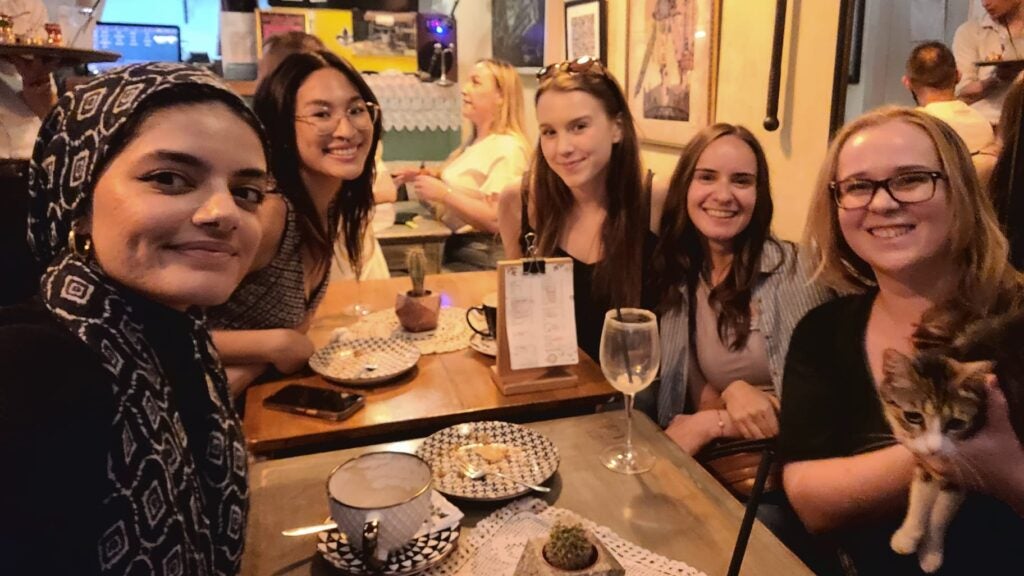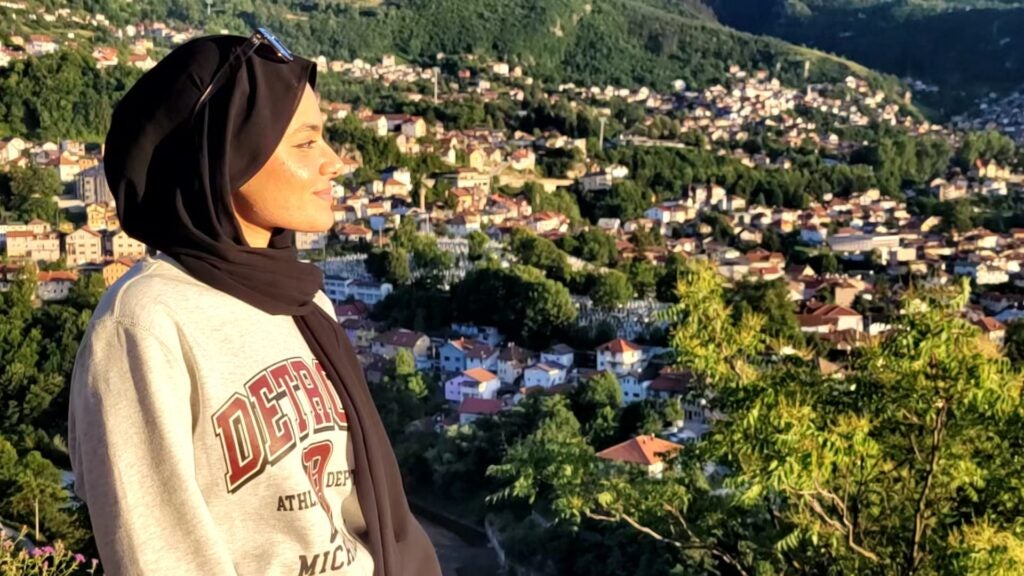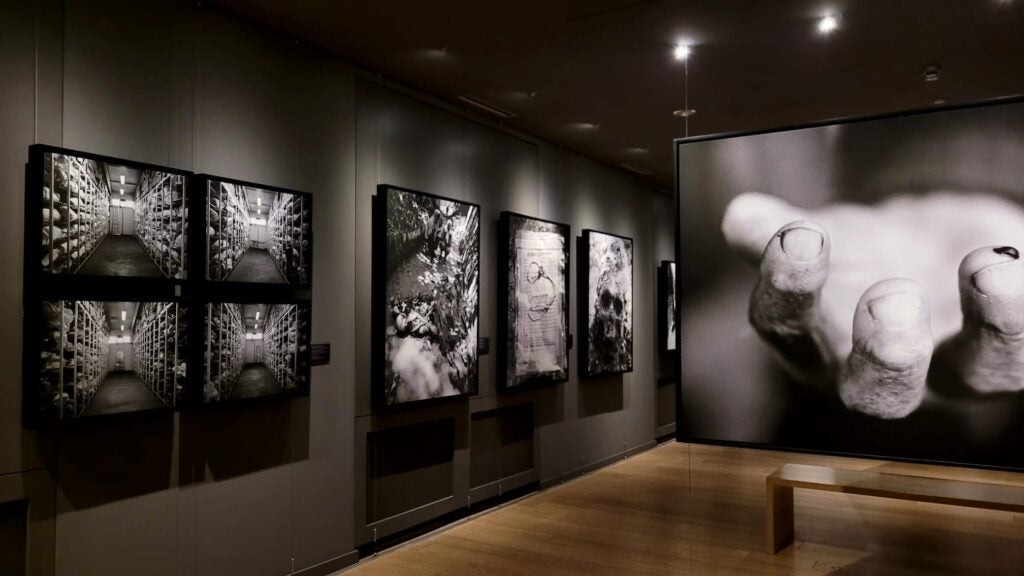Why Fellowship Winners Were Inspired by Post-Conflict Reconciliation in Europe

Amid the echoes of past conflicts in Bosnia and the ongoing struggles in Poland, two Georgetown University in Qatar (GU-Q) students, Minahil Mahmud (SFS’26) and Michelle Hadebe (SFS’25), are uncovering stories of resilience and hope. Through the esteemed Education and Social Justice (ESJ) Fellowships, they explored the pivotal role of social justice initiatives in post-conflict recovery.
Breaking Cycles in Bosnia
Minahil Mahmud’s journey took her to Bosnia and Herzegovina, where she delved into the complexities of interfaith dialogue, education, and peacebuilding in a society recovering from the Bosnian genocide of 1992-1995.
Her independent fieldwork involved engaging with various communities, offering unique insights into the nation’s recovery process. “I examined the programming of a faith-based organization in facilitating connections between young people from different religious backgrounds and regions of the country,” she said.
One of Minahil’s most memorable moments was her interaction with students aged 15-19 at the John Paul II Youth Center in Sarajevo. “They were very grateful for being given the time and space to share their experiences,” she said. Through workshops and shared meals, Minahil uncovered stories of resilience and hope central to her study on healing from conflict.
As an International Politics major, Minahil found the fellowship a pivotal opportunity to put her coursework into practice, equipping her to become a standout researcher and advocate for social justice in her future career. “It provided me with the necessary training in research methods and digital scholarship and allowed me to explore a topic close to my heart: the intersection of education, religion, and social justice,” she reflected. Her research also offered insight into recovery from contemporary conflicts: “The key to breaking the cycle of violence and fear is the truth—reckoning with the past and ensuring it is neither repeated nor forgotten.”
Bridging Cultures in Poland
Michelle Hadebe’s fellowship took her to Poland, where she focused on community-based initiatives aiding teenage refugees from the ongoing war in Ukraine. “My research examines efforts to help them deal with the trauma of conflict and forced migration, as well as their integration into Polish society,” Michelle explained.
A particularly impactful moment for Michelle, who hails from Mamelodi in Pretoria, South Africa, was sharing her personal migration story with the students. “Although we are from different countries and contexts, we could all resonate with one another and understand our shared experience with migration and integration,” she said.
Michelle’s findings emphasized the essential role of social justice in every aspect of society. “It’s the cornerstone. Every individual household, school, and business needs to address and contribute to making the society it exists in more fair,” she asserted. Her research highlighted how targeted, collaborative efforts can directly improve the lives of vulnerable communities. “The work is not just for the government or NGOs. It’s for everyone. The Aspire Education Hub, the community initiative I was investigating, is an excellent example of businesses, individuals, and academic institutions coming together to address important social justice issues affecting teenage Ukrainian refugees.”
Majoring in International Politics and minoring in African Studies, Michelle is deeply passionate about education, social justice, and Africa. Reflecting on the ESJ fellowship, she said, “This fellowship was incredibly people-focused and impact-driven. My key takeaway is that if people and social impact are not at the center of my work, then I am in the wrong career.” Michelle aspires to be a policymaker who solves socio-economic challenges in her country, and her experience in Poland, along with her diverse background, makes her an excellent candidate for such a role.


Inspiring Future Changemakers
Both Minahil and Michelle’s journeys offer invaluable lessons for future fellowship applicants. Minahil advises, “They should be prepared to adapt to the lifestyle and culture of their site because relationship-building is an integral and rewarding aspect of the journey.” Michelle echoes this sentiment, encouraging others to be “sponges, ready to soak in all the knowledge, experience, and connections.”
Their fellowship experiences in Bosnia and Poland reveal the hidden realities of these regions and the transformative power of dedicated research and genuine human connection. As they prepare to present their preliminary findings at the Global Social Justice Research Symposium at Georgetown University in September, Minahil and Michelle continue to exemplify how young scholars can foster understanding and contribute to a more equitable society.
About the ESJ Fellowship
Since 2010, the ESJ Fellowships, awarded annually by the Berkley Center for Religion, Peace, and World Affairs and the Center for Social Justice Research, Teaching, and Service at Georgetown University in Washington, DC, have enabled undergraduate student research fellows to conduct impactful projects in 42 countries.